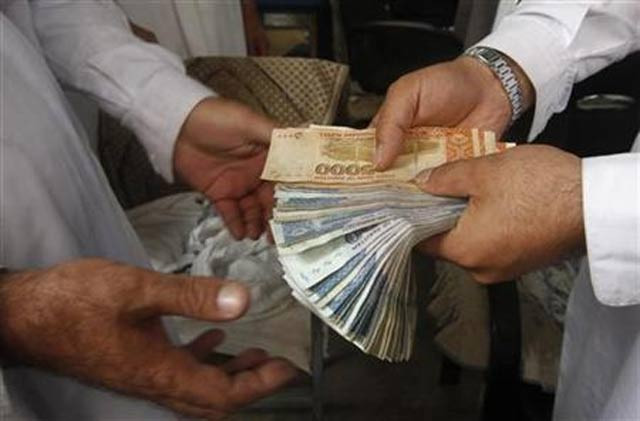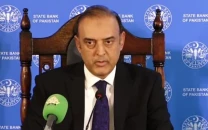Demonetisation of Rs5,000 note will not curb corruption
Corruption rife because institutions do not budge without bribes, commission money

Corruption rife because institutions do not budge without bribes, commission money. PHOTO: REUTERS
States with poor tradition of self-correction lack the capacity to deal with enigmas like institutional dysfunction and the culture of corruption. These two reinforce each other in countries that lack the culture of mass political participation.
Old-design notes to be demonetised
Read any book on the history of revolution and you would inevitably come to the conclusion that corruption is unavoidable, do what you can, without democratic participation of the public – not just in electing the parliament – but also in knowing what to do against the dysfunctional institutions and their runners.
Does corruption happen in Pakistan because the payment of bribes and commission is made easy by the high-denomination note? I do not think so.
It is rife because the institutions, all of them, do not budge without bribes and commission money.
The second reason is that nothing meaningful is being done to correct the phenomenon of sluggish bureaucracy in all tiers and branches.
Protection to this culture is the norm in the procedures and functioning of the state. Investigating corrupt practices is not regular and efficient in this country.
If the political and business leaders want to remove this curse from the bureaucratic channels, they would first have to break away from the entire bureaucratic-business-political chain which protects the phenomenon of corruption.
And if they do so, they would be isolated. If they do not, they would be part of the corrupt culture.
'Modi's demonetisation fails, new notes now being used for corruption'
Suggesting that the high-denomination notes help in easy transfer of money from the raashi to the murtashi and if such notes are scrapped the culture of corruption would be discouraged is the call from a bureaucracy illiterate channel.
We have seen cases drafted and proceedings conducted against politicians and bureaucrats. Not much has ever happened. And there is a cry from one corner that scrapping the high-denomination currency notes might help in curbing the trend of corruption.
Nothing is meaningful in removing the culture of corruption from the function of the state other than a political-moral revolution, which implies sacrifice and fight, which might turn bloody more probably than not.
Conducting cases in courts against the accused on corruption charges is of no use given Pakistan’s history.
There are complaints that many people in the country can evade punishments when cases are framed against them. If they are so powerful, would payments of millions of rupees worth of bribes and commission in smaller currency notes stop them? No way.
They have safe houses where they can stash any amounts of money and gold, prize bonds and documents of possession.
A popular form of bribery is blackmailing businessmen and getting rewards in something much more tangible than cash.
Even if cash payments made in bribes and commission are caught, those who can evade proceedings and investigation would go scot free.
The writer has worked with major newspapers and specialises in the analysis of public finance and geo-economics of terrorism
Published in The Express Tribune, December 19th, 2016.
Like Business on Facebook, follow @TribuneBiz on Twitter to stay informed and join in the conversation.



















COMMENTS
Comments are moderated and generally will be posted if they are on-topic and not abusive.
For more information, please see our Comments FAQ